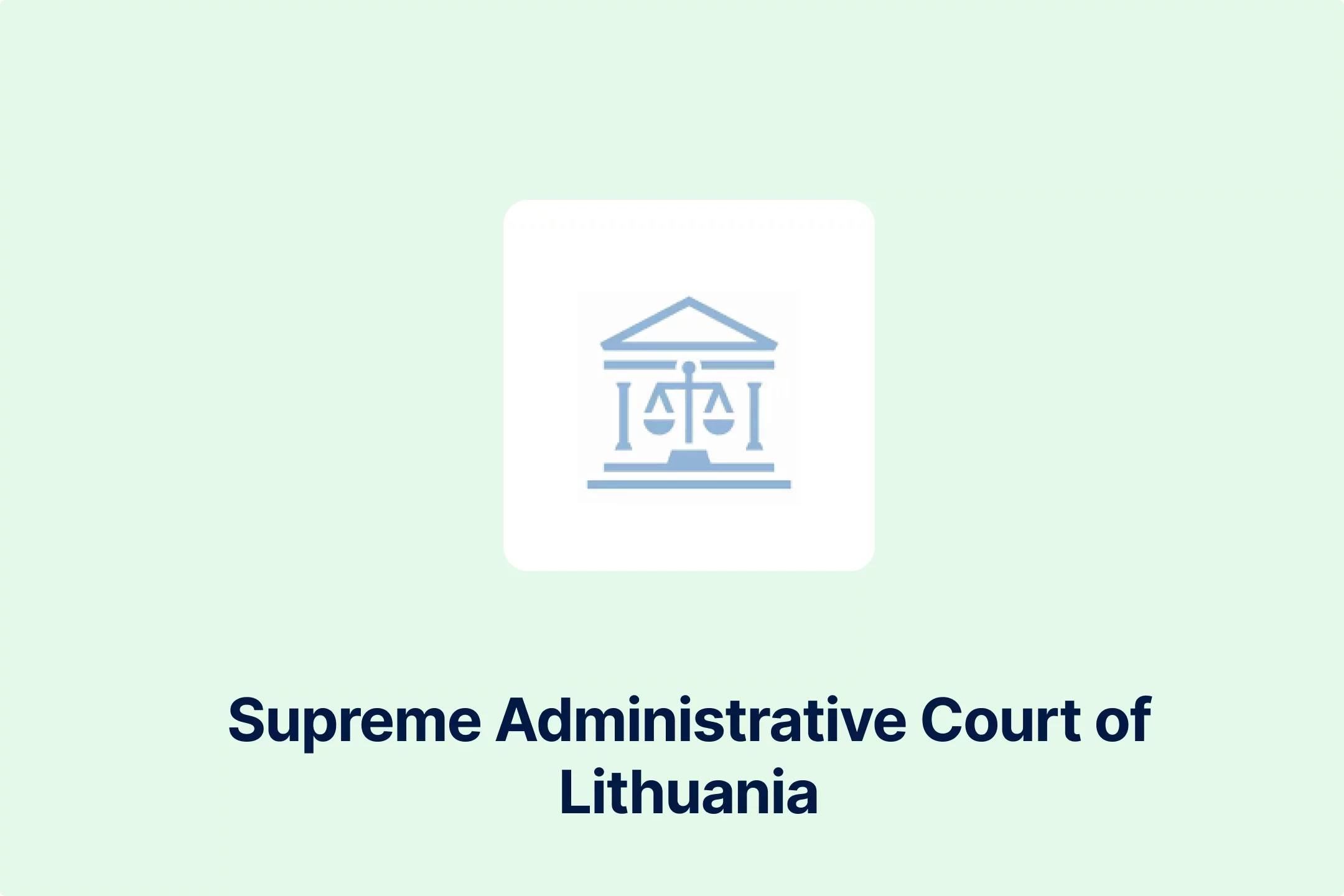VAT on Financial Services: Exemptions and Grey Areas Explained

Summary
Here are 3 key takeaways from the article:
The VAT landscape for financial services is complex due to limited input tax recovery, evolving business models (fintech, outsourcing, cross-border servicing), and varying national practices, leading to "grey areas" and potential disputes.
The EU VAT Directive generally exempts most financial and insurance services to avoid distorting prices and complicating tax computation. The Court of Justice of the European Union (ECJ) has developed extensive case law to clarify the scope of these exemptions, emphasizing the nature of the service itself rather than the identity of the provider.
Digitalization has created new challenges and grey areas in VAT treatment, as innovative financial solutions often don't fit existing definitions. Financial institutions must rigorously analyze VAT exemption rules, monitor legislative changes, and clearly define contractual terms for outsourced services to effectively manage VAT risk.
🎧 Prefer to Listen?
Get the audio version of this article and stay informed without reading - perfect for multitasking or learning on the go.
VAT is often considered a relatively straightforward consumption tax applied to goods and services. Although there are many exemptions, one industry stands out. When it comes to financial services, the tax landscape is increasingly complex, primarily due to limited input tax recovery, evolving business models such as fintech, outsourcing, and cross-border servicing, and varying national practices.
All these factors create what may be described as grey areas, which often lead to tax audits, tax assessments, additional VAT payments, court disputes, penalties, and interests. At the EU level, these may also breach fundamental EU principles and even disrupt the single market. Therefore, it is essential to understand how VAT exemption is applied in the financial sector and how key case-law shapes the VAT treatment of financial services.
VAT Treatment of Financial Services
Under the EU VAT Directive, EU countries must exempt most financial and insurance services, which reflects their unique nature and role in the economy. Since financial services encompass a wide range of activities for VAT purposes, these exemptions also apply to granting or negotiating credit, managing credit, and dealing in guarantees or securities. From there, it is apparent that subjecting financial and insurance services to VAT could distort access or burden costs.
An additional layer of complexity for these services comes from the fact that income derived from them can take various forms, such as interest earned from lending or financing arrangements or commissions received for providing guarantees. Therefore, their margin-based nature makes VAT computation complex and potentially unworkable.
Under the general principle, when a service is exempt, the supplier does not charge VAT on the output. However, this means that the supplier or service provider has very restricted rights to recover input VAT. As a result, financial organizations must carefully structure their VAT accounting and input tax recovery mechanisms.
From a more practical point of view, the VAT exemption applies to loans and credits, insurance, issuance of shares, payment transfers, deposit-taking, and similar activities. However, this exemption is not absolute. For an exemption to apply, a service must meet a strict interpretation of regulations developed to prevent abuse and ensure consistency with the principles of the EU VAT Directive.
In addition, specific sector-based rules and interpretations by national institutions and the Court of Justice of the European Union (ECJ) further determine the boundaries between exempt and taxable financial services.
Case Law Shaping the Scope of Exemptions
Where the definition and provisions left a room for misinterpretation or misapplication of the exemptions, the ECJ developed a rich body of case law clarifying when a given service qualifies for the VAT exemption in the financial sector, and when it does not.
One of the earliest cases relating to this issue is C-5/71, in which the ECJ clarified that not all services connected to payments or transfers automatically qualify for VAT exemption. The decisive factor is the nature of the service itself, whether it performs the essential function of a payment or transfer. Consequently, the exemption does not depend on the identity of the supplier or service provider.
In a more recent decision in joint cases C‑58/20 K & C‑59/20 DBKAG, the ECJ ruled that tax-related services and software licences supplied in relation to special investment funds (SIFs) may qualify for the exemption provided that the services are intrinsically connected to the management of those funds and are used exclusively for those funds.
Regarding the SIFs, the ECJ issued another notable ruling in the case of Joined Cases C‑639/22 to C‑644/22, known as the Dutch pension fund case, in which several pension funds challenged the VAT amounts assessed by the Dutch Tax Authorities on the purchase of asset management services.
In this groundbreaking case, the ECJ concluded that pension funds may qualify for the VAT exemption provided for SIFs if the amount of the pension entitlement or benefit granted by the pension funds primarily depends on the results of their investments.
One of the main issues in financial services is distinguishing between core economic activities and ancillary services. The differentiation of these two plays a critical role in determining the VAT treatment of a transaction. For example, in Case C‑89/23, the ECJ held that auction-related services are treated as separate and independent transactions for VAT purposes, meaning they do not share the VAT exemption applicable to credit granting. The main reason for this was the conclusion that credit could be granted even if a third party conducted the auction.
National courts also play a crucial role in defining the limitations of VAT exemptions. In the case between Target Group and HMRC, the UK Supreme Court ruled in favour of HMRC, stating that the financial services exemption did not apply to Target’s loan administration services. In its ruling, the Court emphasized the importance of a narrow interpretation of the exemption, concluding that, unless the supplier or provider is involved in the actual execution of the payment, rather than merely in administrative steps, the VAT exemption does not apply.
Grey Areas and Ongoing Disputes
Despite this evolving jurisprudence, significant grey areas remain, leading to a debate at the EU level about the potential withdrawal or revision of the exemption for financial and insurance services. In 2021, the European Commission published the results of its public consultation on the VAT rules.
The public consultation results showed strong consensus among respondents in favor of maintaining VAT exemptions. However, the majority of respondents, around 70%, believe that the current exemptions are no longer fully aligned with modern developments, particularly the digitalization of the economy. This gap between the existing VAT framework and the realities of digital service delivery is what creates grey areas.
For example, in its response to public consultation, Insurance Europe, a Brussels-based representative body for national insurance associations, identified as problematic services provided by fintechs, payment services, insurance intermediary activities conducted through digital processes, as well as mediation and distribution services, due to unclear definitions for VAT purposes.
As a solution, Insurance Europe proposed a comprehensive legislative overhaul that will include a clearly defined preamble and fully replace the existing, fragmented set of rules. The organization added that the current directive, with its narrow and sometimes outdated scope, no longer reflects the operational realities of the modern financial and insurance sectors, particularly given the increasing prevalence of outsourcing and digitalization.
Compliance Implications and Risk Management
Businesses operating in or servicing the financial sector must rigorously analyze and strictly interpret the VAT exemption rules. Primarily, businesses must carefully assess the nature of their services to establish whether the exemption applies. Since input tax recovery is often limited or prohibited for exempt financial services, businesses must evaluate and document the recovery restrictions and ensure that VAT cost allocations and internal accounting systems are structured accordingly.
Given that many services are outsourced, e.g., loan servicing, businesses must ensure that contractual terms define the economic substance of the service. This means precisely defining who executes which function, who bears liability, who controls the process, and how the service is framed. The recent Target case highlights how the subtle difference between execution and instruction determines VAT exemption eligibility.
Finally, the businesses must monitor legislative reform and consultation developments. Given the consensus that the existing VAT framework does not meet the needs of the digital era, there will undoubtedly be changes in the coming years.
Conclusion
While many banking, insurance, and fund-management activities are VAT-exempt, there are several grey areas, primarily in modern financial operations such as outsourcing, fintech, and cross-border servicing. Consequently, this evolution of the financial sector means novelties in the applicable rules and regulations. Therefore, businesses operating in the finance sector have two tasks in front of them: understanding current VAT exemption criteria and determining factors, and staying ahead of the curve.
Source: European Commission, EY, Deloitte, Irish Tax and Customs, Finnish Tax Administration, EU VAT Directive, VATabout - Your Loans Just Got More Expensive: ECJ C-89/23 Declares Auctioning Pledged Goods a SEPARATE VAT Service!, VATabout - ECJ Clarifies VAT Rules for Pension Funds and Special Investment Funds, ECJ Case C-5/71, UK Supreme Court, ECTI | Policy Department for Economy and Growth, Insurance Europe

Featured Insights

Burkina Faso FEC E-Invoicing Mandatory July 2026
🕝 February 24, 2026More News from Europe
Get real-time updates and developments from around the world, keeping you informed and prepared.
-e9lcpxl5nq.webp)




-zzrhegqsyq.webp)

-ulcnia30z1.webp)



-3rcczziozt.webp)

-rvskhoqpms.webp)




-a5mkrjbira.webp)

-ivkzc1pwr4.webp)




-hssrwb5osg.webp)



-c06xa1wopr.webp)









-webajrr4ny.webp)
-evibmwdwcn.webp)
-7acdre0hop.webp)

-lcgcyghaer.webp)
-ol6mdkdowg.webp)
-aqdwtmzhkd.webp)

-njgdvdxe2u.webp)



-i6rki3jbad.webp)
-hdwgtama05.webp)

-atbhy5fyxv.webp)






-zp2n6zixoa.webp)
-oa1ynbm4sn.webp)


-lltkno6txy.webp)



-do38odrqnq.webp)

-t409oldqzt.webp)

-hordopb6xh.webp)

-ooimnrbete.webp)

-lwb5qpsily.webp)


-eumafizrhm.webp)
-mtqp3va9gb.webp)

-3ewrn1yvfa.webp)
-591j35flz2.webp)

-huj3cam1de.webp)


-hafis0ii23.webp)

-qseaw5zmcy.webp)



-qzsah2ifqx.webp)


-69rzooghib.webp)
-wrvng98m0g.webp)


-psucycuxh2.webp)
-klyo8bn5lc.webp)




-6wv5h5eyyd.webp)
-tfgg78rbid.webp)
-a6jpv9ny8v.webp)
-qhdbapy0qr.webp)


-owvu7zoc13.webp)


-h28jrh1ukm.webp)

-wl9bl1rw3a.webp)

-2w76jtvtuk.webp)

-c0uvrmrq9j.webp)



-pofe7ucwz3.webp)



-5cc23ezxyf.webp)
-rrmabbekeb.webp)








-iyyeiabtaf.webp)
-c8rbjkcs01.webp)
-nilkffjhah.webp)

-hikakq55ae.webp)

-z1d60bldtg.webp)
-d1a0q6n7mp.webp)
-viip8nvoeh.webp)
-bvv1otliox.webp)



-de8hdb1bn3.webp)
-7xsxxoypnx.webp)

-cm0opezg73.webp)
-0tovsdupmi.webp)
-subxdamdj6.webp)


-gly6ablwnh.webp)
-gkduqhwbzh.webp)
-qpe1ld9vcj.webp)
-8noukwsmba.webp)
-aka29tuhkt.webp)


-fisvs27yrp.webp)


-mp0jakanyb.webp)

-aivzsuryuq.webp)



-o7f4ogsy06.webp)

-zjja92wdje.webp)
-hrbhdts8ry.webp)
-qtdkwpgkug.webp)


-cf8ccgah0p.webp)
-0em3cif5s6.webp)






-ptzesl0kij.webp)

-tfzv42pyms.webp)







-uodv7sfbih.webp)
-bbrdfmm9qf.webp)



-m2tl8crfqr.webp)




-1awbqjgpjs.webp)
-avbjsn1k1g.webp)


-0h8ohkx6s0.webp)



-wfmqhtc7i6.webp)
-7wljbof2zo.webp)

-eqt97uyekl.webp)
-wzw9mcf563.webp)

-z4oxr6i0zd.webp)




-l0zcrrzvhb.webp)
-fhtic1pwml.webp)

-iipdguuz9p.webp)
-nkhhwrnggm.webp)
-pltqwerr3w.webp)

-nn6mtfbneq.webp)

-tmnklelfku.webp)



-8z1msbdibu.webp)
-7g16lgggrv.webp)



-lxcwgtzitc.webp)
-9mc55kqwtx.webp)


-xla7j3cxwz.webp)
-jrdryw2eil.webp)






-t9qr49xs2u.webp)


-qjopq5jplv.webp)



-vune1zdqex.webp)

-qsozqjwle2.webp)
-rgjta7iwiv.webp)

-zb6bxxws47.webp)
-lyfjzw4okp.webp)

-ogpfmol5m1.png)


-czisebympl.png)

-zetvivc79v.png)
-ud7ylvkade.png)
-qizq6w2v5z.png)







-ihr6b4mpo1.webp)
-k1j4au0ph6.webp)
-swxxcatugi.webp)


-ig9tutqopw.webp)

-tauoa6ziym.webp)

-spr0wydvvg.webp)

-xfuognajem.webp)





-u2nv5luoqc.webp)








-opuxpan2iu.webp)




-kwttsfd8ow.webp)
-8u14qi10nj.webp)

-wjpr96aq5g.webp)

.png)

.png)


.png)


.png)



.png)
.png)
.png)
.png)
.png)

.png)
.png)




.png)
.png)




































































































































